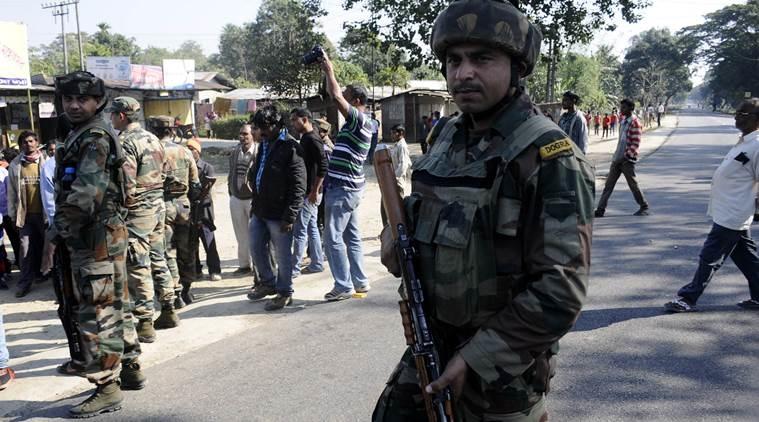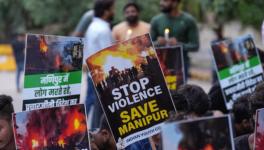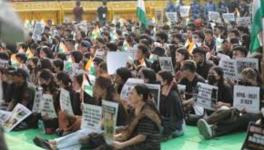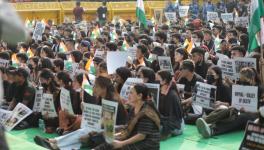Sanction, Prosecution, AFSPA and Victims

Keeping abreast of the legal developments in Manipur, around 356 members of the Army filed a petition before the Supreme Court on August 14. They alleged that the Central Bureau of Investigation's (CBI) probe into extrajudicial killings is biased against the Armed Forces. This petition was filed in response to the Supreme Court's Judgement in November 2017, where it had directed the CBI to constitute a five-member Special Investigation Team (SIT) to probe the encounter killings in Manipur.
Also Read: Kashmir Needs Solution not Suppression
The petitioning Army personnel in the case prayed that the Court issue a writ of mandamus in several instances to protect the Armed Forces for actions taken in good faith. The petition lamented the fate of the soldiers stating: “Time and again the personnel of the Armed Forces of India have to carry out various operations in inhospitable terrain, weather and within hostile local population. The errant behaviour on the part of the people of the State of Manipur is directly proportional to the lawlessness and absolute disregard to the safety and protection of the Armed Forces functioning in the State.” This petition comes in addition to another petition filed by Major Aditya Kumar's father against the Jammu and Kashmir police filing a First Information Report (FIR) regarding the army opening fire on civilians in Shopian. The petition filed by Major Kumar's father has argued that even a FIR cannot be filed against the army as a sanction is required for legal proceedings to commence. Here, the question that arises is whether the legal proceedings begin at the stage of filing an FIR or at the time the charges are framed by the Court.
Also Read: 30 Years Worth of Violations in a 49 Page Report
The recent petition, however, has raised pertinent questions regarding the way in which the forces operate. The petition would give one the impression that the army is called in to aid the civilian government without clear directions. For example, the term 'contravention of law' is used to justify the army's use of force. However, the army is not the police; there is confusion among the ranks as to what constitutes a 'contravention of law'. Another aspect that emerged is the soldiers are stuck in a quandary. If they ignore the orders of the superior officers, they can face a Court Martial. However, if they follow the orders, then they may have to face criminal proceedings. The third point raised was whether individual liability should be assigned when acting on orders.
If anything, this petition highlights that the Armed Forces are confused about their role. What more is that the Armed Forces (Special Powers) Acts (AFSPA) have conferred wide discretionary powers on the forces without detailing their obligations and liabilities. Another point worth pondering is that the AFSPA has been in operation in the Naga Hills since 1958; it has only grown in its operation to cover almost all of the Northeast. AFSPA is a special law meant to deal with an emergency situation. If it has been in force for 60 years, can the situation still be considered an emergency?
The seemingly perpetual emergency has spawned its own set of problems. The civilian population has been squeezed, and as the text of the army's petition makes it clear, the forces view all the people in the region as potential 'terrorists'. Over 1,500 cases of extrajudicial killings are the testimony to this.
Also Read: Are the SFs Aiding the Arms Trade?
According to articles published by the Imphal Free Press, around March 2010, three bodies were recovered in the jungles of Karbi Anglong district in Assam. The bodies bore marks of torture with nails having been driven through their heads as well as burns. They had been picked up alive by the 3-CISU around 7thMile in Dimapur. They were tortured before being shot behind the unit's mess. Their names were Phijam Naobi, R.K. Ranel and Th. Prem. The army denied having any knowledge of the men, and claimed immunity under AFSPA when the police conducted a preliminary investigation. However, on June 30, a recommendation letter signed by Colonel Shrikumar of the 3-CISU named Captain Rubina Kau Keer as deserving to be awarded the Sena Medal for gallantry. The letter mentioned that the Captain had busted a terrorist ring, however, the names of the 'terrorists' were the same as the deceased bodies recovered from Karbi Anglong.
Also Read: Nagaland: Mindlessness of AFSPA
However, more skeletons have come tumbling out of the closet when Lieutenant Colonel Dharamvir Singh of the 1st Para Regiment (Special Force) was arrested from his quarters in Imphal on July 1. Lieutenant Colonel Singh was attached to the 3-CISU, and was arrested by the Army. His wife, fearing for his safety, held a press conference, and filed a petition of habeas corpus in the High Court of Manipur. It transpired that Lieutenant Colonel Singh had been making noises about the 2010 killings among others. On July 28, the Lieutenant Colonel's wife filed an affidavit on his behalf in the High Court. The affidavit, which got leaked to the press, contained more instances of extrajudicial killings perpetrated by the 3-CISU.
A People’s Liberation Army (PLA) leader, G. Jiteshwar, who was also known as Gypsy was picked up in Dimapur town, killed and buried behind the unit's mess. Thangjam Satish, who was studying in St. Dominic's College in Shillong, was picked up from his rented accommodation and along with an unnamed companion met the same fate as Gypsy. The affidavit also mentioned that a lady and a child were picked up from Dimapur town, but were released after a ransom of Rs. one crore was paid to the 3-CISU team.
What makes these revelations relevant is that the Central Bureau of Investigation (CBI) has constituted a five-member Special Investigation Team (SIT) to document instances of extrajudicial killings in Manipur, as directed by the Supreme Court of India. In 2017, the Court had directed the CBI to conduct these investigations following a writ petition filed by the Extra Judicial Execution Victim Families Association (EEVFAM) in 2012. The petition led to the Court appointing Justice Santosh Hegde in 2013 as the amicus curiae in the matter. The Justice Hegde committee picked six cases out of over 1,500 cases mentioned by the petitioners and found that all the six cases were of extrajudicial killings. The petition has named all the security agencies in Manipur – the Army, Manipur Police, the Border Security Force (BSF) and the Central Reserve Police Forces (CRPF) – as the killers. The CBI's SIT, however, has of late come under fire from the United Nation's High Commissioner for Human Rights (UNHCHR). On July 4 this year, the office of the UNHCHR had commented on the slow progress of the SIT, and had said that it appears to be “deliberate, undue and unreasonable”. The 356 Army personnel's petition challenges the SIT's chargesheet.
At this point, it should be evident that the 'emergency measure' brought in through AFSPA has resulted in a different kind of lawlessness. When even senior officers are implicated in cases of torture and extrajudicial killings, it signifies a rot that cannot be dealt with by ordinary measures. The 356 Armed Forces personnel who filed the petition have every reason to be worried about their fate, particularly, if they have carried out similar 'operations'. However, the issues that they have highlighted cannot be wished away. There is a need for clearly defined roles and rules for the Armed Forces to operate when AFSPA is in force. However, with around 60 years of the Act in force, it is also clear that military operations cannot solve the problems.
Get the latest reports & analysis with people's perspective on Protests, movements & deep analytical videos, discussions of the current affairs in your Telegram app. Subscribe to NewsClick's Telegram channel & get Real-Time updates on stories, as they get published on our website.






















